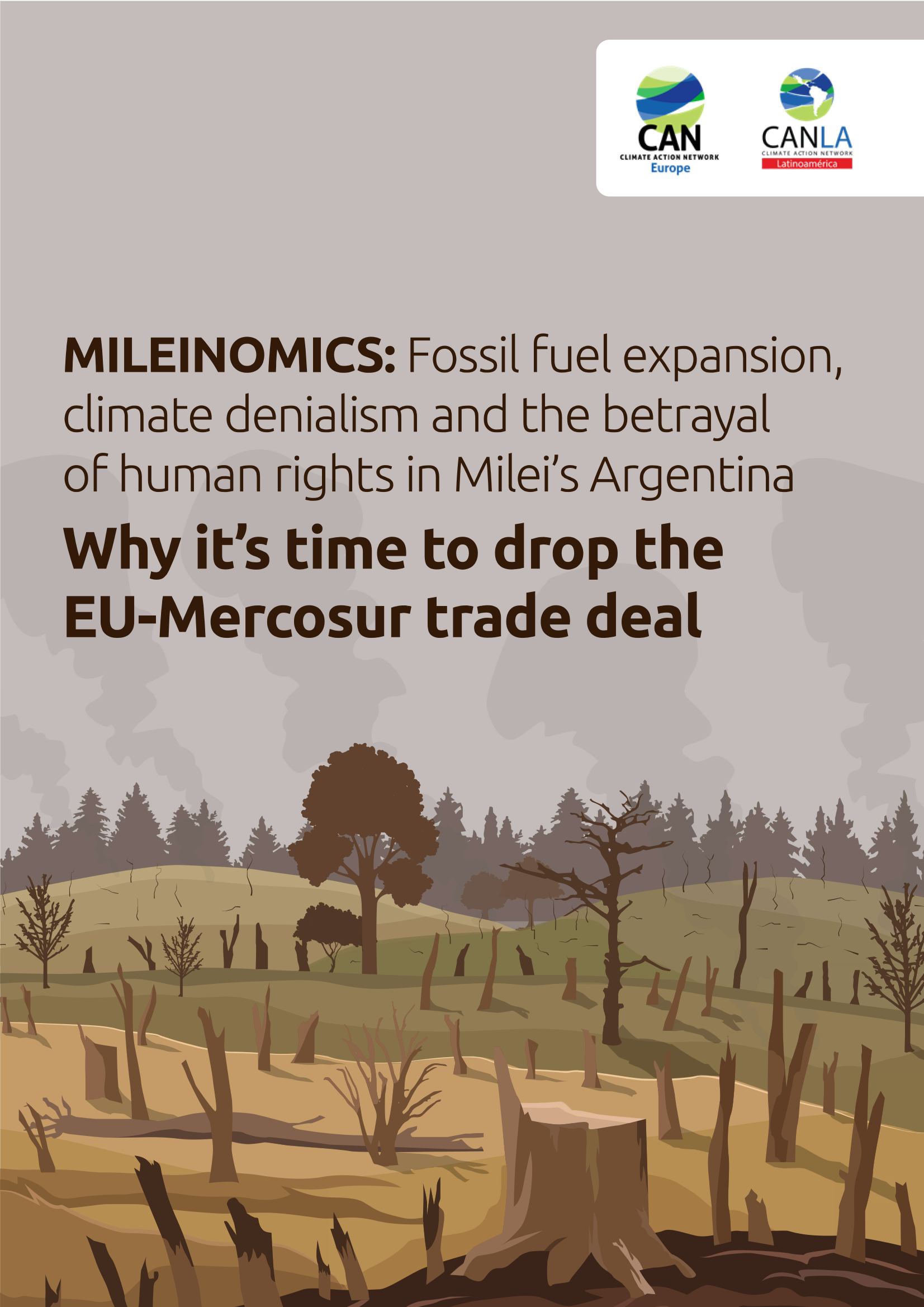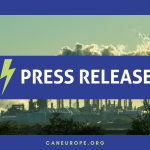Authors: Audrey Changoe & Maristella Svampa
A sweeping economic reform bill, called the Ley Bases (Bases Law), was approved in June this year in Argentina, sparking massive protests. It grants extraordinary powers to the president for one year to boost exports in oil, gas, mining, agribusiness and forestry sectors, through the new Incentives Regime for Large Investment (RIGI).
The RIGI regime aims to attract major large-scale foreign direct investments by boosting Argentina’s exports through a series of far-reaching tax breaks, customs, foreign exchange and regulatory benefits, for projects worth more than USD 200 million. It will also further weaken state controls, with deregulation, privatisation and the unconditional opening up of the economy. But while extractive industries benefit from far-reaching economic benefits, the radical economic reform package does not include any accountability for these industries’ social or environmental impacts, nor does it set out any requirements for companies to submit Environmental Impact Studies.
Moreover, the RIGI gives corporations even more exclusive rights over that of the population as it provides for the notorious ISDS (investor-state dispute settlement). All disputes related to the RIGI will be settled in secret international arbitration courts outside Argentina, instead of its domestic courts. The ISDS system has been criticised by international bodies like the IPCC and the UN for its damaging effect on climate action and environmental protection measures. It allows corporations to sue provincial governments that signed up to the RIGI for multi-million dollars of taxpayers’ money when they believe their profits have been harmed by a public measure, including environmental protection measures. Argentina is already the most sued country in the world in terms of investor-state disputes, including claims by major corporations in the gas and oil sectors, such as Total Energies, BP and Repsol. Corporations like Shell and BP have already said that under the RIGI their investments could increase to even higher figures.
Most worrying is the ongoing state repression by the Milei government and the way it is restricting social protests. The government announced the creation of a special ‘Security Unit’. The unit has the authority to mobilize and concentrate police and federal forces at any time and place, only by order of the national government to allow for extractivist territories to receive extra protection from military forces in the event of social conflict and protests against extractivist projects. All this indicates The RIGI prioritises the needs of the companies over the needs of the local population, including access to water and energy, even in times of scarcity. The RIGI has triggered a nationwide campaign by social movements called “No to RIGI”.
Against this backdrop, the EU, which claims to be a champion of the green transition, is willing to do business with the climate-sceptic far-right president in Argentina and is rushing to finalise the environmentally damaging EU-Mercosur trade deal. The deal is intended to boost trade in agricultural products such as beef, soy and ethanol, as well as hazardous pesticides banned in the EU and polluting European-made cars. Many of these commodities are the biggest drivers of deforestation, greenhouse gas emissions, and biodiversity loss, as well as leading to the displacement of Indigenous peoples and other human rights violations in Argentina and other Mercosur countries (Brazil, Paraguay and Uruguay). The influence of big business is reflected in the design of the deal, which has no reference to binding corporate responsibility for human and environmental rights violations. Instead, the deal contains binding rules that favour market access for corporations to secure and cheapen supplies of raw materials.
The second-largest forest ecosystem on the South American continent, the Chaco forest, will be further threatened by the deal. In the Argentinian part of the Gran Chaco, five million hectares of native forest have been lost in the past two decades, mainly due to soy and beef expansion, products promoted under the EU-Mercosur deal. The Chaco forest is considered of global importance for its role in mitigating the effects of climate change, acting as one of the planet’s largest carbon sinks. Milei’s “waving chainsaw” already eliminated funds for the protection of native forests, leaving the Forest Law without its main monitoring and action tools and opening the door for further deforestation of the Chaco forest.
Moreover, the human rights of Indigenous communities are directly threatened by the EU-Mercosur deal, since areas at risk of deforestation often border or are in Indigenous territories. Most alarming are the reported trends of repression against Indigenous groups as well as the structural racial discrimination they face in Argentina. But, despite the increased pressure the EU-Mercosur trade deal could put on Indigenous communities, their voices have been excluded from the negotiations and creation of the deal.
European pesticide companies are looking to capitalize on weaker pesticide laws through the EU-Mercosur deal. Argentina has long been recognised as one of the top three pesticide users in the world, alongside Brazil. People in rural communities have campaigned against the use of pesticides next to their homes due to the severe health risks. But the human rights impacts don’t seem to bother the chemical industry. The largest European chemical lobby group, the European Chemical Industry Council (CEFIC), has been promoting rapid ratification of the EU-Mercosur, stating that reduced tariffs for chemicals will allow steady growth in chemical exports to Mercosur countries.
The deal is touted as a win for economic development and diversification, but studies have shown that it poses serious economic risks to Mercosur countries and could even contribute to higher inequality, further destabilising already vulnerable economies and pushing Mercosur countries further away from sustainable development. The European Commission’s own sustainable impact assessment admits that the GDP gains from the deal are negligible.
Against this backdrop, the European Commission is now trying to create a shortcut changing the voting process which would bypass the opposition of those national governments which have been critical of the EU-Mercosur deal. This proposal is to split the trade pillar of the EU-Mercosur agreement from the rest of the Association Agreement to be put for adoption by the Commission without requiring the consent of all EU Member States within the Council of the EU, and without requiring any kind of national ratification and violating the negotiation mandate. Hundreds of civil society organisations and parliamentarians have expressed concern about the Commission’s proposal to split the approval process, which severely threatens the democratic processes.
At a time when Argentina’s government is pushing through reforms that exacerbate the impacts of the extractivist model while rejecting frameworks to protect human and environmental rights, and facilitating the repression and criminalisation of legitimate protests, the EU-Mercosur deal risks fuelling climate break-down and exacerbating the social-ecological crisis in Argentina.
The EU-Mercosur deal is, in reality, a stark example of the EUʼs hypocritical double standards. While the European Commission has set internal targets for the European Green Deal to reach climate neutrality, reduce pesticide use, and phase out petrol and diesel cars in the EU, it is pushing for ratification of a trade deal that promotes the complete opposite for countries in South America. This portrays the ecologically unequal exchange between the Global South and Global North, and the neo-colonial structures of global trade.
The environmental joint instrument the EU Commission is currently working on can not address the long-term destructive impacts the trade deal will have. The unsustainability of the agreement lies in its very essence since it is precisely the trade in harmful products and the expansion of the intensive agribusiness model that drives environmental crimes, land-grabbing, destruction of nature and greenhouse gas emissions. Milei’s so-called “libertarian experiment”, or ‘Mileinomics’, for radical free-market reforms combined with the outdated EU-Mercosur deal are a recipe for economic disaster. It is rooted in a neo-colonial economic model that created the social-ecological crisis in the first place.




